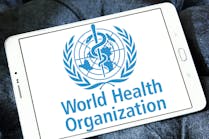Q&A: Mathias Goyen, chief medical officer EMEA, GE HealthCare, on the findings of the “Reimagining Better Health 2023” study
As an industry self-check, the “Reimagining Better Health 2023” study was designed to take the pulse of the healthcare industry, and examine barriers and obstacles that still may exist. The study was conducted between August and October of 2022, and included responses from clinicians, patients, and patient advocates located in eight countries in North and South America, Europe, and the Asia-Pacific region.
Mathias Goyen, Prof. Dr. med., chief medical officer EMEA at GE HealthCare, shared the findings of the study with Healthcare Purchasing News via email, and offered insight on how imagining better health can be achieved with better communication and feedback throughout the healthcare industry.
What was the driving factor behind the survey, and is it conducted annually?
As a newly independent company, GE HealthCare commissioned the “Reimagining Better Health 2023” study in service of the healthcare industry. Problem-solving starts with listening and understanding, and insight into the patient and clinician experience is critical to collectively reimagining healthcare. We shared the findings to provoke discussion, collaboration, and action across all stakeholders. It is not an annual study.
Questions relating to technology solutions addressed respondents’ general perception and experience with technology within their facilities and made no reference to any specific solutions or vendors.
Any references in the study to technology are inclusive of the entire spectrum of medical technology, such as medical devices, software solutions, electronic patient records, and other digital workflow solutions.
Was there a top healthcare concern in common across the countries and people surveyed, and if so, what was it (i.e. staff shortages, AI/technology concerns, supply chain challenges, etc.)?
Overwhelmingly, clinicians and patients have a shared vision: a healthcare experience that is more human and flexible, focused on the needs of patients and clinicians alike. And, while the goal is clear, the study revealed challenges to achieving this experience include distrust in artificial intelligence (AI), low technological interoperability across the healthcare system, workforce burnout, fragmented care collaboration, and accessibility to care.
An illustration of the tension that comes with progress is that 60% of clinicians think it is very important to use advanced technology and make basic clinician tasks more efficient; however, only 45% of clinicians say AI—a technology that has the potential to transform big data into usable data and help automate tasks—is ready for medical use. In the United States, that number drops to only 29%.
Since I am a radiologist, I often use the example of radiology. AI technologies are now taking over many of the administrative tasks for radiologists, giving them time and energy to focus on the parts of their job that can’t be left to technology—for example, applying their experience and training to thoroughly analyze complex cases and take the steps needed to create better patient outcomes. In this respect, AI has the potential to help rehumanize healthcare by giving the radiologist an opportunity to get out of the darkroom and connect with the patient. AI also helps support radiologists to create more defined imaging reports, which can be used to make more informed clinical decisions with diagnostic confidence.
When it comes to “reimagining” healthcare, what role could the results of the survey play moving forward?
The “Reimaging Better Health 2023” study defines a clear goal for the future of healthcare—a more human and flexible healthcare system. It is a call to action across the healthcare industry to transform these insights into a path forward and collectively build a bridge to this desired future state. Within GE HealthCare, the study serves as an important reminder to maintain a vigilance on innovating in service of patients and clinicians who face healthcare challenges every day. Firsthand insights are critical to gaining a deeper understanding of systemic problems and devising sustainable solutions.
Among the trends that were noted in survey results, which one do you think will have the greatest influence—and potential benefit—for the future of the healthcare industry?
The future of healthcare is human and flexible care backed by digital solutions, and this touches all the trends identified in the study. We have an opportunity to create precision care that leverages a patient’s unique data via multi-modal sources to determine the most appropriate course of treatment and deliver the best possible outcome. Then, leveraging AI to help synthesize the data, generate insights, and identify relationships that weren’t seen before—while also helping hospitals use resources more efficiently.
As a radiologist, I’m most excited for the widespread adoption of AI to act as an intelligent assistant in the radiologists' workflow and automating repetitive and tedious tasks, so radiologists can focus their time on providing a narrower differential diagnosis.
With the barriers in healthcare that need to be addressed, which one could have the most detrimental effect on the healthcare industry if not overcome, and why?
Each barrier is critical in its own right and they are closely connected. As the study reveals, people, processes and technology must work in harmony. When any of these face barriers, it can have repercussions across the greater healthcare ecosystem.
For instance, 43% of patients do not feel heard by clinicians, and just over half of clinicians don’t feel they have enough time and resources to care for both patients and patients’ families. At the same time, 40% of clinicians have yet to be convinced that medical technology enhances their clinical workflow and promotes efficiency, and 55% say AI technology, in general, is not ready for medical use.
AI and other digital technologies can automate administrative tasks and help synthesize data for clinicians. Addressing the trust barrier has the potential to have a meaningful impact on other barriers, such as allowing physicians to spend more time with patients, perhaps ultimately leading to patients feeling heard and alleviating the time burden that clinicians reported.
From the choices of: better patient relationships, enhanced technology, or more streamlined workflows, which offers the potential to have the greatest impact on healthcare in the next five years, and why?
To achieve a human and flexible healthcare experience, we must collectively work to address each of barriers identified in the study. That said, technology has the potential to aid in driving change across many of the problems disrupting the system. This is why I say the future of healthcare is human and flexible care backed by digital solutions.
At GE HealthCare, we’re working to unlock the potential of AI to help drive operational and clinical efficiencies from reducing scan times, to helping with administrative tasks, and increasing diagnostic confidence. Our Command Center, for instance, connects, integrates, and analyzes data across healthcare systems to improve hospital patient flow and quality. And, Critical Care Suite 2.0, an AI solution embedded within a mobile x-ray system, helps enable faster clinical decision making, helps improve triage decision making and can help improve outcomes. These are just two examples of the ways we, as a healthcare industry, can leverage technology to problem-solve.

Brenda Silva | Senior Editor
Brenda Silva is Senior Editor for Healthcare Purchasing News.





